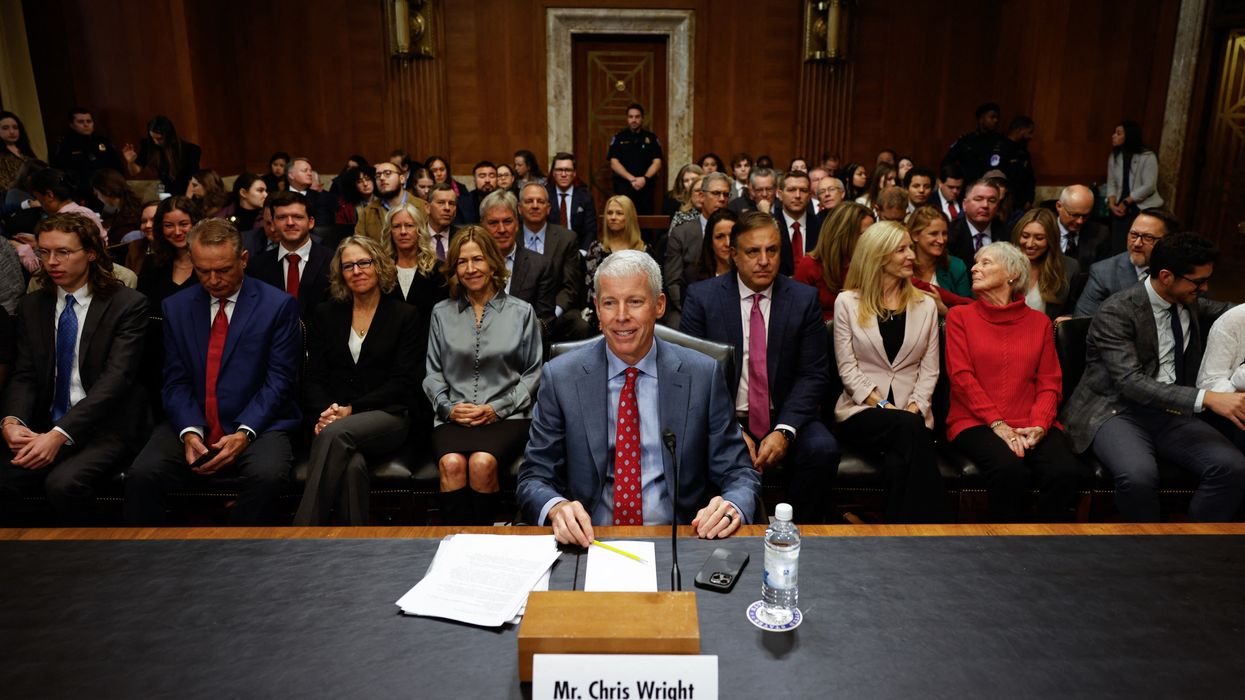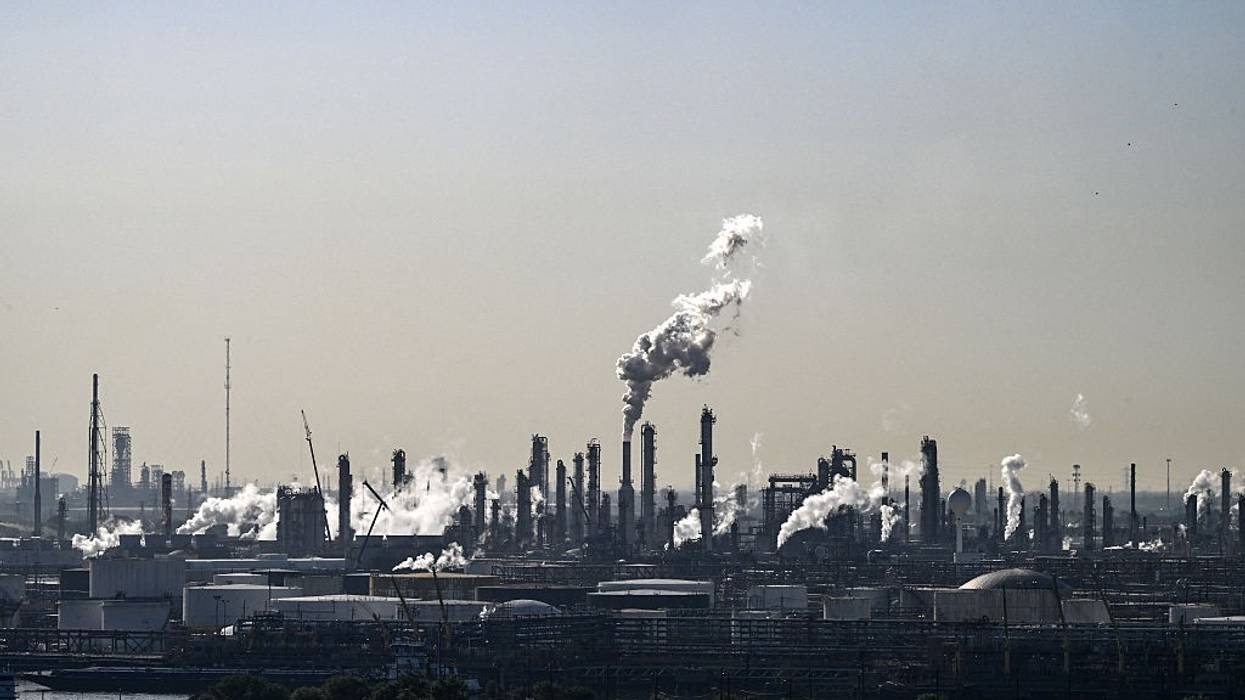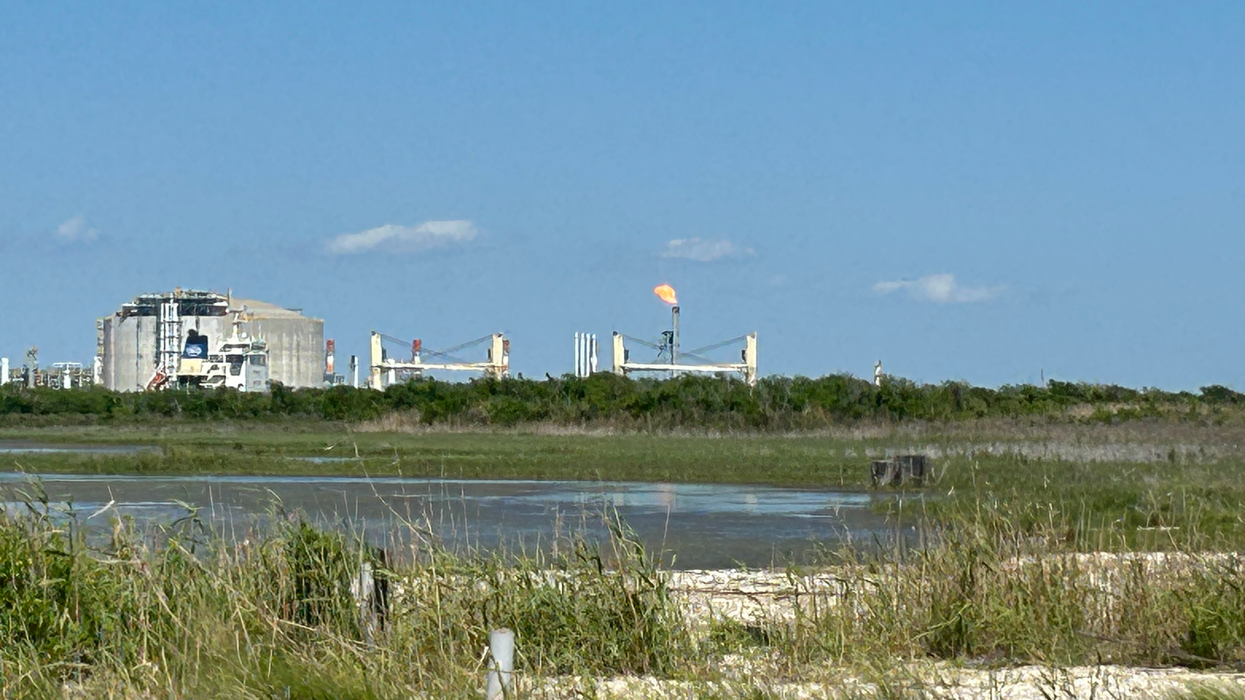How to Make Sure People and the Planet Don’t Pay for the Data Center Buildout
Decision-makers must do their due diligence to prioritize the needs of a community before the needs of a data center.
Data centers—the places used to host servers and computers that are needed to process various IT tasks like AI queries—are booming. And the corporations that build them want a lot more land and a lot more power to make them run. These plans continue to grow in scale, and there are no signs of a slow-down.
So, how much energy will data centers need in the future? Nobody is 100% sure, but some experts estimate it could nearly triple in just 5 years, with data centers representing up to 12% of total U.S. electricity consumption in 2028, up from 4.4% in 2023.
Greed Is Fueling Short-Sighted Policies
U.S. President Donald Trump’s Department of Energy has put forth its own forecasts in a recently-published report on resource adequacy and grid reliance, which looked at multiple sources to arrive at a midpoint estimate of around 50 gigawatts (GW) of new load additions needed to meet data center energy demand. Unfortunately, the report uses flawed assumptions that greatly exaggerate projected load growth and retirements of existing fossil plants, while significantly underestimating plans to add new cleaner generation to address potential reliability concerns. This type of misleading, fossil-fuel-friendly narrative is not new for Donald Trump and his administration. This past Independence Day, he signed the reconciliation bill into law, followed by an executive order that promise devastating impacts for the future of clean and affordable energy.
Politics matter here because they set the rules of the game. Without regard for our climate or health at the highest levels of government, data center developers are happily jumping at the chance to meet the energy needs of their facilities with new gas, nuclear, or even proposing to bypass utilities altogether in order to quickly connect to the grid. Despite claims that fossil fuels are needed to keep the lights on, our analysis has shown that it’s actually renewables that support a more resilient grid.
Utilities play a role in this too, of course. In states like Wisconsin, where various data centers have been proposed, utilities are throwing new gas plants at the problem in a poorly planned attempt to keep up with energy demand predictions. They have failed to understand the paradigm shift that load growth from data centers represents, and are instead attempting to solve new problems with old tools.
So much of this reliance on methane gas hinges on corporations following through on their data center plans (which seems antithetical to maintaining commitments to reducing greenhouse gas emissions that many of these companies still hold). But who pays for all this gas infrastructure? And what other risks and costs can we expect if plans fall apart as quickly as they came together?
Ratepayers Bear the True Risk of Fossil Fuel-Powered Data Centers
Utilities are allowed to recover costs and rake in profit via customers’ bills when building new infrastructure like gas-fired generation facilities. This puts ratepayers on the line financially for utilities’ short-sighted decisions, which are often lacking in transparency.
A report from Harvard Law experts recently identified subtle ways in which the costs of data centers are shifted to ratepayers through mechanisms like special contracts, which are offered to big customers by utilities in the form of unique and negotiated rates, but which risk cost recovery shortfalls that all other ratepayers have to later subsidize via higher bills. In other words, utilities cut deals for data centers which increase everyone else’s bills.
Additionally, when data center growth triggers the need for investment in the transmission system, those costs may also get passed down to ratepayers unless state regulators intervene.
The problem isn’t just data centers—it’s what’s powering them, and that dirty power is costly in so many ways.
In short, there are a number of ways in which our current approach to regulating energy systems is not structured to protect ratepayers in the face of this fast-paced tech boom. Profit-driven policies that benefit the already rich, along with little to no transparency into the weedy details of who pays for what, make for a dense and unforgiving mountain of obstacles in the way of an equitable energy future.
But the problem isn’t just data centers—it’s what’s powering them, and that dirty power is costly in so many ways.
A Wisconsin utility got approval to build two gas-fired plants, priced at $1.2 billion and $280 million, which will be repaid through charges added to customers’ electricity bills for the lifetime of the plants. Beyond this upfront cost lies a set of costs that doesn’t often get factored in. RMI, a non-profit focusing on energy systems, argues that the increased reliance on fossil gas brings additional cost risks from bottlenecks in supply of both gas and equipment that are borne by consumers. If these plants turn out to be obsolescent (due to overestimates of load growth or cheaper wind and solar power, for example), the utility’s customers will still have to pay all the utility’s stranded costs.
In addition to this are environmental costs of data centers and the huge health impact costs that come as a result of gas plant pollution.
A massive construction price tag, the costly risks of stranded assets, and the health-related expenses associated with just this one example in Wisconsin should give us pause.
Make Data Centers Pay Their Fair Share
In many places we’re seeing the ways in which policy and regulation is attempting to keep up with ‘Big Data Center’ plans. There is wide recognition that the solutions must include ratepayer protections. Namely, implementing policies that direct large electricity users like data centers to pay for any incremental grid infrastructure and operating costs needed to meet their power demand.
Policymakers and regulators, as well as utilities themselves, have proposed plans to create unique electricity rate structures, or tariffs, for large users. What that means is a big electricity user such as a data center would be subject to rates, terms, and conditions that are more appropriate to how they use energy and their impact on the grid. Even when utilities do initiate a plan like this, stakeholder engagement is crucial to ensuring that protections for ratepayers are well thought out. Requests for contested cases at the regulatory level, such as this one from the Citizens Utility Board of Wisconsin (CUB), allow for a more transparent process that keeps utilities accountable to their customers.
In Oregon, the state legislature passed a bill called the POWER Act, which shifts the infrastructure and service costs associated with rapid load growth to large users. It also includes language requiring data centers to sign long-term payment contracts with their respective electric utilities in order to decrease the risk of data center project developers ducking out early, creating stranded assets, and forcing others to foot the bill of new investments that ultimately aren’t needed.
These democratic processes play an important role in achieving fair and just rules, especially when we remember that this rapid growth in large data centers is unprecedented, speculative, and that the uncertain future of this technology puts those responsible for planning around their energy needs in a complicated position. Utility costs have long been assigned to the customers that cause those costs, at least in theory.
Say ‘No’ to Dirty Data
This trend in planning for proactive rates and contracts for new data center demand is encouraging because it acknowledges that most energy customers are not massive corporations seeking to ride the next big tech breakthrough to profits. Utilities and regulators must also provide stakeholders with transparent information on data center energy and water usage so that ratepayer advocacy can be informed by the most accurate and up-to-date information.
And let’s not forget that at the crux of this conversation lies a critical issue that we previously discussed: the steep cost of using fossil fuels, like gas and coal, to power data centers. There are certain costs that most tariffs don’t cover, including damage to our health due to polluted air, continued overreliance on unreliable sources of energy, and a price too high to conceive at the expense of our planet and future generations.
Ratepayers should not bear the burden of hosting dirty gas plants that put their health at risk, nor should they be responsible for paying higher energy costs to meet data center demand.
In Michigan, stakeholder groups are petitioning for regulations (using the contested case mechanism that I mentioned earlier) that would direct utilities to give priority within data center interconnection requests to those with clean energy plans. Other recommendations from stakeholders include transparent reporting and guidelines for keeping these data centers accountable for their clean energy promises. For a more detailed explanation of these efforts in Michigan, check out this blog from my colleague, Lee Shaver.
Minnesota, meanwhile, passed a bill last month that resulted in mixed feelings for many. The legislature extended tax breaks to 2,042 for data centers in the state, which would benefit big developers and likely bring more projects to the state. However, the bill also revoked a tax exemption on electricity bills, making data centers more accountable for their energy use. Utilities will also be prevented from passing on these costs to their other customers or avoiding the state’s 100% clean electricity mandate. Not only that, but a new data center fee was introduced that would direct funding toward weatherization programs for low-income residents to make energy-efficient upgrades. The bill did fall short on robust commitments to issues like natural resource protections.
People-First Solutions
There doesn’t seem to be a singular right way through these challenges (see Elon Musk’s xAI project in Memphis for an example of the wrong way), but some guiding principles might help:
- Decision-makers must do their due diligence to prioritize the needs of a community before the needs of a data center. The benefits of economic growth should be distributed through equitable and just channels.
- Ratepayers should not bear the burden of hosting dirty gas plants that put their health at risk, nor should they be responsible for paying higher energy costs to meet data center demand.
- Utilities must prioritize the use of renewables, efficiency, energy storage, and other grid-supporting technologies to meet new demand, relying on viable and adaptable long-term planning rather than an arbitrary urgency that risks further overreliance on fossil fuels.
- Utility plans and data center information should be made accessible and transparent to the public, including any grid impacts resulting from data center energy demand.
The cost of doing business with dirty fossil fuels isn’t worth it. The fight to put people over profits always is.



